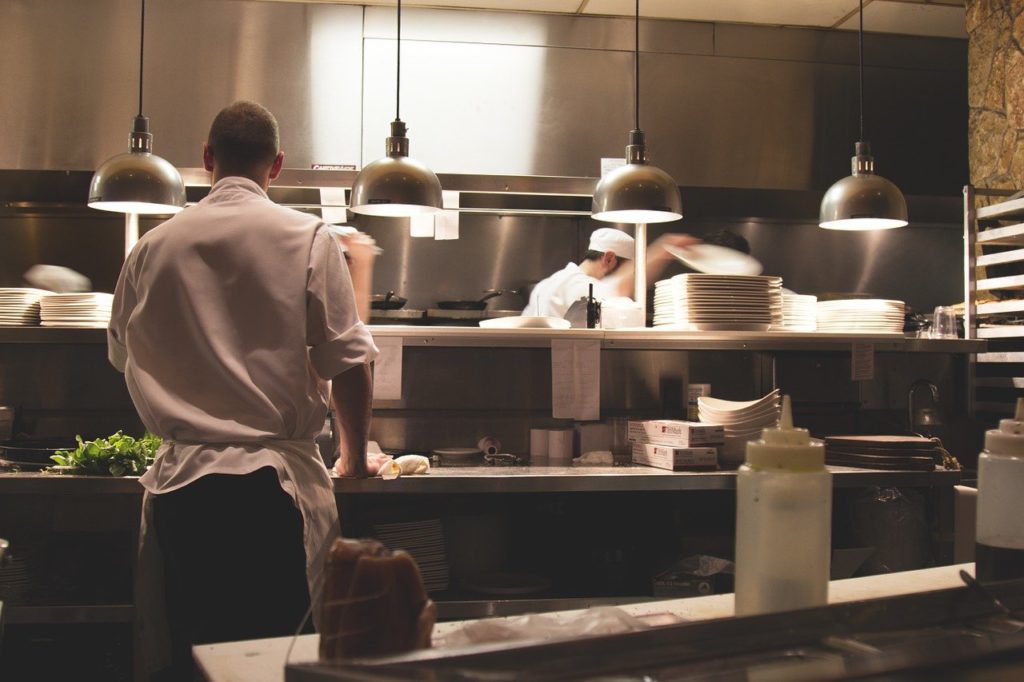Business kitchens are intended for food safety and productivity. It is a good idea to create your commercial kitchen in your home or in a separate facility so that your work may be carried out as efficiently as possible. Some people dream of operating a bakery or restaurant, but they may not have the money to purchase a building to start the trade. Alternatively, a person has the option to create a food company from home. Regardless of whether you make a few batches of cookies a week or serve all food stores in your area, your commercial kitchen must meet the cleanliness and safe food management criteria.
Certification and inspection of kitchens
When the inspector checks your designs, they will check off the standards such as appropriate dishwashing and refrigerating equipment. The work process begins during the design stage with your local health dept. Your home kitchen might be licensed as a business kitchen in accordance with the legislation of the household kitchen which exists in many places.
You still have to pay fees, though, and carry out inspections. When you originally design and build your commercial kitchen, you must be licensed and you must also renew your license each year. Various health inspection authorities operate with various sorts of food companies.
State commercial kitchen requirements
While national and local regulations may differ, they follow the same criteria. There must be a separation of storage facilities for food and possibly harmful substances. Cooling and freezing units must meet the code standards. There must be separate sinks for the commercial kitchen for mops, dishes, washing of hands, and food preparations. Prepare tables and other surfaces of food contact should be in stainless steel or in a smooth and simple to maintain equivalent material. You should accomplish all that work before submitting a certification application.
Foodservice equipment
Professional equipment is used in most commercial kitchens, for both safety reasons and aesthetics. Equipment for the food industry is frequently manufactured from steel that can be cleaned and sterilized easily. Professional cooling systems are designed to fast cool foods from temperature ranges in which foodborne diseases most frequently develop. Industrial stoves feature a heat output higher than the domestic range, with volume cooking capability.
Washing equipment shall either achieve a hot enough temperature to sterilize or numerous sink compartments shall be provided by hand for washing, rinsing, and sanitizing. A licensed commercial kitchen may use home cooking equipment without industrial capacity, but a list of cleanliness and food safety regulations must still be satisfied in your setup. Check out this food manufacturing plant design by Dejong Consulting.
Purchase and assemble all equipment needed for the enterprise in accordance with the requirements for commercial kitchen design. For example, you may have to have a specific number of lavatories or regulatory cooking equipment to operate a food business legally. If you plan to bake with an oven that is 40 years old, a state or local health inspector will most probably not certify your kitchen. New equipment will increase your chances of being certified by your kitchen and will help your company as a whole.
Workflow
While the local health departments are concerned solely with the architecture of commercial kitchens as far as food safety is concerned, for example, the installation of a mop dish too near the prepared dish. There should be enough space between devices for employees to walk and work without bumping in, and sufficient room for efficient activities. Consideration of the design and working flow can make the design of a commercial kitchen more complicated, but these measures save effort and time in the long term.
Register for a course in foodservice management if required. Ask your county health agency if the state requires a certificate for food services management and if so, how to apply for that training. Follow the rules and obligations required for the course and you will be certified. Some countries demand this accreditation and may not allow you to open the company until you get it.
In-home food production
For some companies, it is a fantastic alternative to produce and sell food from home. There are restrictions on the sorts of food kitchens that can be produced in certain countries. For example, Arizona can only produce and sell clothing and baked items by the proprietors of the home kitchen. They have to first implement their equipment, observe local rules as well as the usual commercial kitchens and apply to the agency which supervises homemade food companies.
A cottage law establishes requirements for domestic commercial kitchens in order for them to ensure safe operation and maintain their accreditation. For instance, you can cook in the same area for your family as long as you don’t cook business simultaneously, because of Pennsylvania law. Commercial foods and food for your family must be stored separately from non-food products. Smooth and simple to clean work surfaces. Kids have to be kept out of the kitchen, and no pets can ever be in the house.
